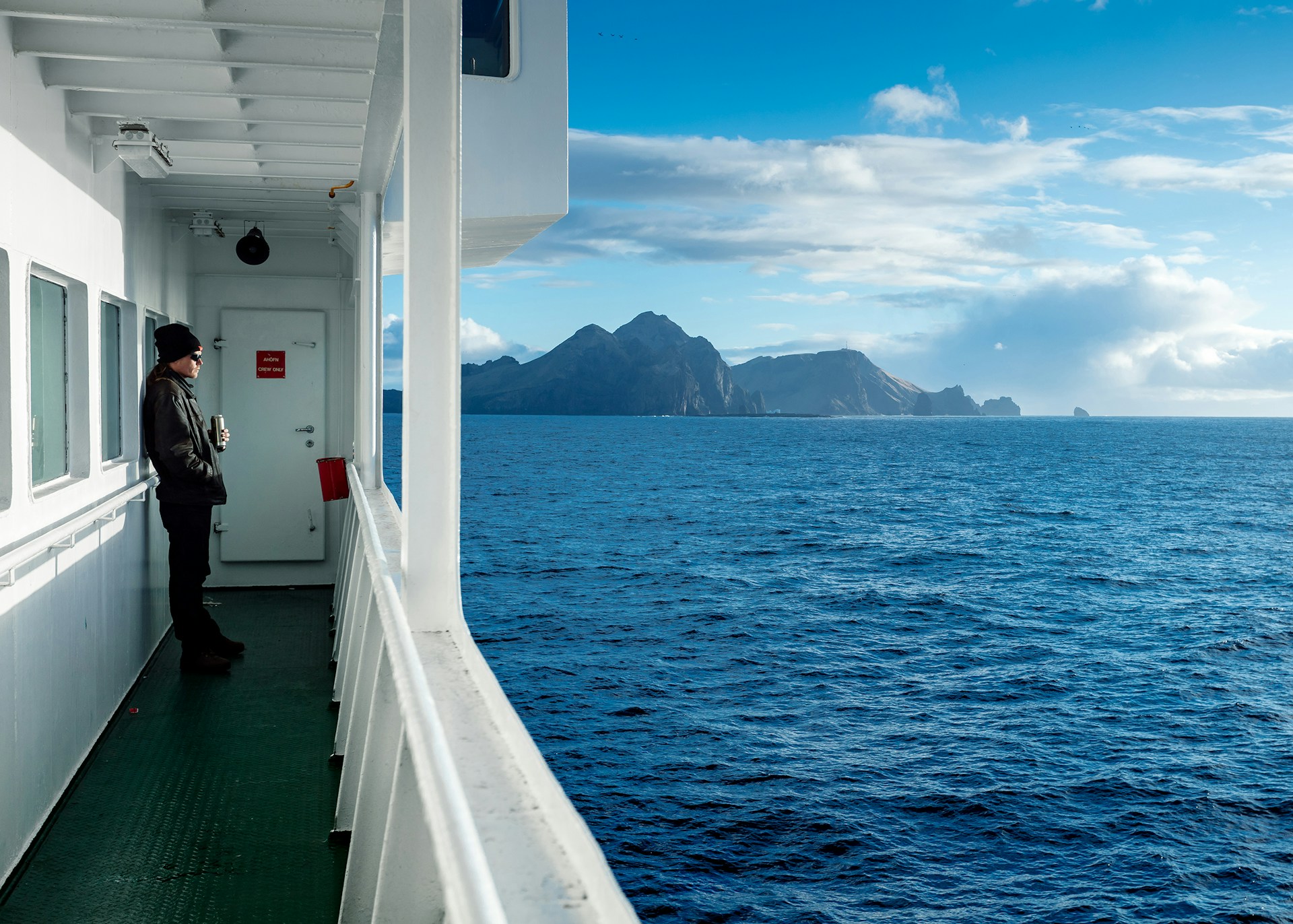The life of a seafarer is often romanticized in literature and film, but the reality of seafarer jobs is far more complex. While working in a maritime job is undoubtedly rewarding and can be adventurous, there are a good deal of misconceptions surrounding jobs at sea that we think it’s important to debunk.
In this blog post we’re going to take a look at some of the most common myths about working on a ship that landlubbers have and shed a little light on the realities and challenges of life onboard a vessel.
7 Common misconceptions people have about seafarer jobs
1. Working on a ship is a glamorous lifestyle choice
While the idea of traveling the world and exploring exotic destinations may seem glamorous, the day-to-day life of a seafarer is far from it. Long periods away from home and demanding work schedules demand that anyone working in a seafarer job is both mentally and physically fit.
Seafarers often endure challenging conditions including rough seas and extreme weather - both of which require resilience to be able to withstand.
And don’t think that working on a cruise ship is much different to working on a container ship or chemical tanker. While cruises take place in calmer waters and stay closer to land than merchant voyages, you are still there to work, and work hard.
2. Seafarer jobs involve lots of free time
Contrary to popular belief, seafarers do not have as much free time as you might think. While they will normally have designated off-duty hours, their workload and responsibilities often extend beyond their scheduled shifts or watches.
Maintenance tasks, safety drills, and emergency responses require seafarers to be available and alert at all times, leaving little time for leisure activities or relaxation.
That’s not to say it’s all work, work, work. While some seafarers working on ships will chill in their cabins with a movie when they clock off, there is often time for a crew BBQ, game of soccer on deck, a workout in the ship’s gym, a spot of fishing, and even karaoke - a big favorite with Filipino seafarers!
3. Seafarers have ‘a girl in every port’
Ahh - the reputation of the sailors of yore. Once upon a time, it can’t be denied that when those working in a seafarer job reached port they were met by certain young ladies who wished to show them a good time. But that was a long time ago.
These days, the majority of seafarers are working hard so that they can send money home to their families - not fritter it away in port on a good time.
Add to that the reality of much quicker port turnarounds and far shorter shore leave than sailors back in the day enjoyed, and you’ll find that most seafarers would rather catch up on some well earned rest and make some phone calls home.
4. Maritime jobs pay huge salaries
Yes, there are a number of positions in the shipping industry, both shore-based maritime jobs and jobs on ships, that offer competitive salaries and benefits, but many entry-level seafarer jobs do not provide substantial financial rewards.
This is why it’s important for seafarers at the beginning of their maritime career to work hard, gain experience and qualifications and advance up through the ranks to where the better paying jobs at sea are.
In addition, because most seafarer jobs are contract-based, it’s crucial for anyone working on a ship to line up their next job at sea after they disembark from their vessel and return home for a period of rest.
5. Seafarer jobs are only for men
Yes, it’s true that historically, the maritime industry has been male-dominated, but there is a growing recognition of the valuable contributions of women in seafaring jobs.
Unfortunately, gender bias and stereotypes still persist, and women may face unique challenges and barriers to entry in this traditionally male-centric environment.
The good news is that today, more women are pursuing careers at sea as deck officers, engineers, and other positions, although women still only make up 2% of the maritime workforce working in a crewing position and the majority of these are on cruise ships.
6. Seafarer jobs will become obsolete in the digital age
Despite advances in technology and automation, particularly autonomous, or self-driving, ships, the maritime industry remains essential for global trade and commerce.
Ships continue to be the primary mode of transporting goods and commodities across oceans, sustaining economies and livelihoods worldwide and seafarers are still needed to crew them.
While digitalization has transformed certain aspects of maritime operations, the human element remains indispensable for safe navigation, maintenance, and decision-making onboard vessels.
7. Once a ship has set sail, seafarers can relax
If you think that seafarer jobs involve little more than anchoring the vessel, loading or unloading cargo and then setting sail again, you’re very much mistaken. Seafarers are among the hardest working people you’ll ever meet and if it wasn’t for them, the food we eat, cars we drive, clothes we wear and medicines we rely on would be much harder to come by.
Indeed, there is always something to do onboard, from keeping watch to repairs and maintenance to checking safety equipment and keeping a sharp eye and ear out for alarms and alters, there’s never usually a dull moment.
You won’t find any merchant ships where the crew is kicking back with a beer and lazing around in a hammock the minute they’ve left port!
Clearing up myths about seafarer jobs one by one!
In conclusion, there is a lot more to working in a seafarer job than meets the eye. While the allure of adventure and travel may be appealing, it's essential to dispel the misconceptions and romanticized notions surrounding maritime careers.
Seafarers face unique challenges, sacrifices, and realities that require resilience, adaptability, and a genuine commitment to their job and debunking myths and spreading a greater understanding of what it’s like working at sea is important.
This is so that maritime academies and the industry in general attract the right kind of people, and also so that those who do not work at sea are able to better appreciate the invaluable contributions of seafarers and support their wellbeing and rights as essential workers.

Eve Church
Eve is Martide's content writer, publishing regular posts on everything from our maritime recruitment and crew planning software to life at sea. Eve has been writing professionally for more than two decades, crafting everything from SEO-focused blog posts and website landing pages to magazine articles and corporate whitepapers.
UK

is the only site for maritime jobs




